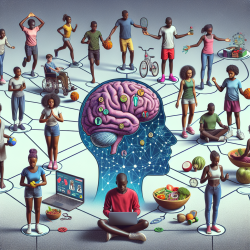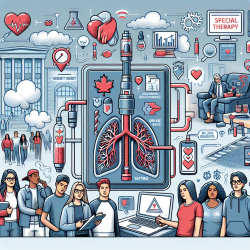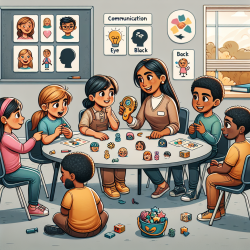Introduction
In the realm of mental health care, the visually impaired population often remains underserved. Despite the prevalence of mental health issues such as depression and anxiety among individuals with blindness or visual impairment (BVI), the utilization of mental health services is alarmingly low. This blog delves into the findings of a comprehensive literature review, "The Underutilization of Mental Health Care Services in the Lives of People with Blindness or Visual Impairment: A Literature Review on Rehabilitation Factors Toward Provision," and offers insights for practitioners to enhance their service delivery.
Understanding the Challenges
The research highlights that short-term mental health interventions are insufficient for addressing the complex mental health needs of the BVI population. The review identifies several factors contributing to the underutilization of mental health services, including the lack of disability identity work in rehabilitation processes and the inadequate integration of mental health care into vocational rehabilitation services.
Key Findings and Recommendations
- Integrate Disability Identity Work: The literature suggests incorporating disability identity work into health-rehabilitative processes to better address the unique mental health needs of individuals with BVI. This involves recognizing and validating their experiences and challenges related to vision loss.
- Reevaluate Short-Term Interventions: Practitioners are encouraged to move beyond short-term interventions and consider long-term, holistic approaches that encompass both mental health and vocational rehabilitation.
- Educate and Empower: A critical podcast or forum focused on educating practitioners about the health-rehabilitation factors influencing mental health care provision can improve future mental health policy and practice for people with BVI.
- Advance Research: Disability scholars should advance research on integrating critical theories in work with people with BVI and accelerate qualitative, community-based methods to enhance understanding of this population and their unique mental health needs.
Moving Forward
To bridge the gap in mental health care for the visually impaired, practitioners must adopt a more comprehensive approach that addresses both the psychological and rehabilitative needs of this population. By fostering a deeper understanding of disability identity and integrating it into care processes, we can create a more inclusive and effective mental health care system.
To read the original research paper, please follow this link: The Underutilization of Mental Health Care Services in the Lives of People with Blindness or Visual Impairment: A Literature Review on Rehabilitation Factors Toward Provision.










